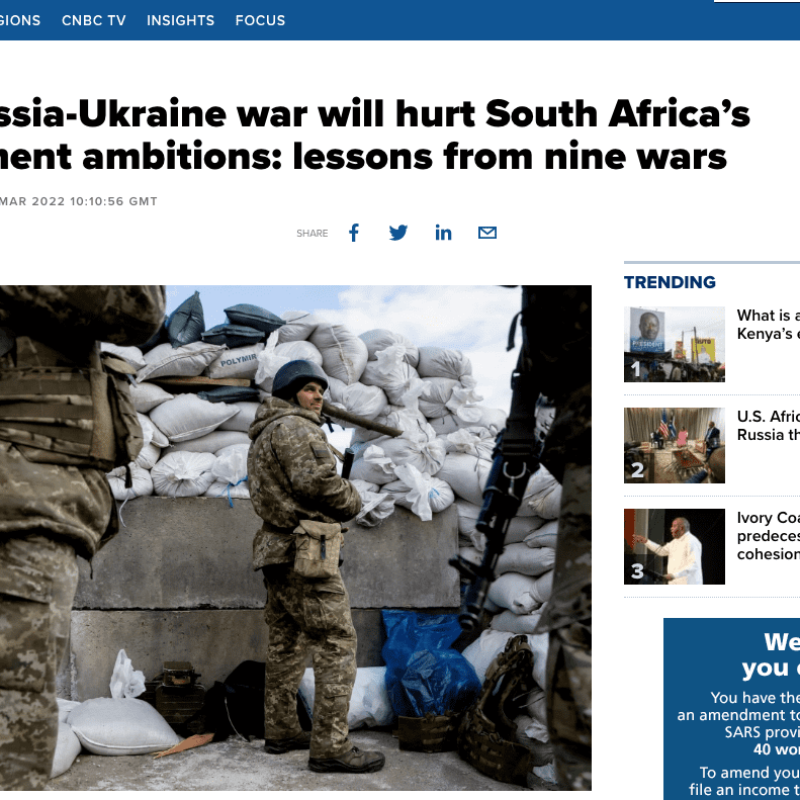Lessons from nine wars since the early 1970s, and the Brexit vote, show that global foreign direct investment inflows generally decline during the year of the war and the year after. South Africa, having embarked on an investment drive since 2018, faces a tough job making the country more investor friendly and marketing it to the rest of the world given the Covid-19 pandemic and most recently the Russia-Ukraine war. Thus, policy makers need to be more aggressive in implementing structural economic reforms alongside public efforts to demonstrate progress, to achieve foreign direct investment targets.
Introduction
Global economic growth was already expected to moderate to 4.4% and 3.8% in 2022 and 2023 from 4.9% in 2021, according to the International Monetary Fund. This moderation is driven by diminishing base effects of the deep contraction from the 2020 great recession and the withdrawal of both fiscal and monetary stimulus across major advanced and emerging markets.
Now Russia’s invasion of Ukraine, the ensuing war, and the associated sanctions that have been imposed by the West, are likely to intensify that contraction. Although the events may appear localised, the economic consequences will be global and extend into the long-term.
Foreign direct investment (FDI) trends during and immediately after nine major wars since 1970 and the Brexit vote suggest that South Africa’s ambitions to attract US$100 billion in direct investment, most of it foreign, will likely be stalled. This means that policy makers must be even more determined and aggressive in pushing through structural economic reforms, coupled with extensive showcasing of their progress at every investment conference, for South Africa to stand a chance of achieving FDI targets that will lift economic growth, and reduce unemployment, poverty, and inequality.


